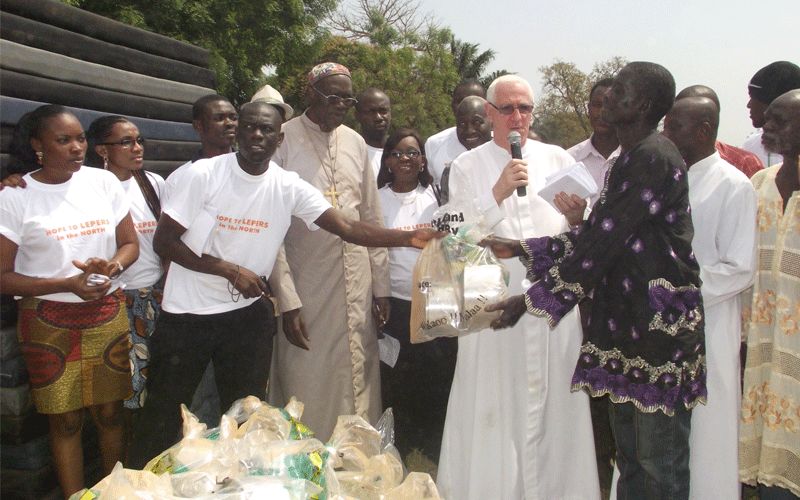She suggested a review of the figure “to reflect the current economic situation and to alleviate the plight of our brothers and sisters with leprosy.”
Dr. Zanetor observed that one of the main challenges that persons with leprosy face is stigmatization and discrimination. According to the lawmaker, these people are marginalized and treated with scorn within their communities. This, she said, leads to situations where the disease goes unreported and people refusing to seek early treatment for fear of being marginalized.
“There is the need for concerted effort towards ending discrimination against persons with disability and I call on government, the clergy, Civil Society Organizations, traditional authorities, politicians and all facets of society to join the fight discrimination and stigmatization against affected people,” she implored.
She stressed that lepers “need our love, care and support,” stating that since leprosy often starts as a harmless skin patch which is mistaken for common skin condition, “it is imperative to encourage people to report any kind of skin lesion for proper diagnosis to be made and the right treatment administered. This way, the disease can be cured and the consequent disability prevented.”
“We must also work towards ensuring that the drugs to treat leprosy are readily available so that disease can be managed within communities”, she stated, pointing out that “the national referral hospital must be adequately resourced to be better placed to support the prevention and management of disabilities in persons affected by leprosy.”
(Story continues below)
She reiterated the need for leprosy to be reviewed as a matter of urgency given increasing number of reported cases.
“There is no doubt that public education must be intensified on early detection, prevention and treatment in order to de-stigmatize leprosy and those who have diagnosed with it,” she said.
Celebrating the 2020 Leprosy Day in at the Eyindakrom Leprosarium, near Cape Coast in the Central Region in January, Fr. Campbell called on the government through the Ministry of Gender, Children and Social Protection (MoGCSP) to speed up the process of placing inmates of the Ankaful (Central Region), Kokofu (Ashanti Region) and Nkanchina (Northern Region) Leprosaria on the Livelihood Empowerment against Poverty (LEAP) programme.
The cleric said that “this is something we have to follow through to make sure that you (the cured lepers) are on the LEAP programme,” adding that “It is the least we can do for you, to make sure that every month you get some subsidy from the government.”
He told the inmates that “any occasion I keep on asking the Vice President to the Ministers of State to increase the money, because GHc30 a month (US$5.5), which is GHc 1.00 a day ($0.2), is not very much. So, I will keep on asking to increase it to more than GHc1.00 a day for you. I will continue to fight for you so that more is added to the GHc1.00 to help you to live.”
“Even those in prison in Ghana get food worth GHc 1.80 (US$0.33) every day, and here you are in a place like this and it is not your fault that you have leprosy, and you get less than they (prisoners) get. You should get more, so we will keep on pressing the government to give you more than GHc1.00 a day,” the Ghana-based Irish cleric said.








